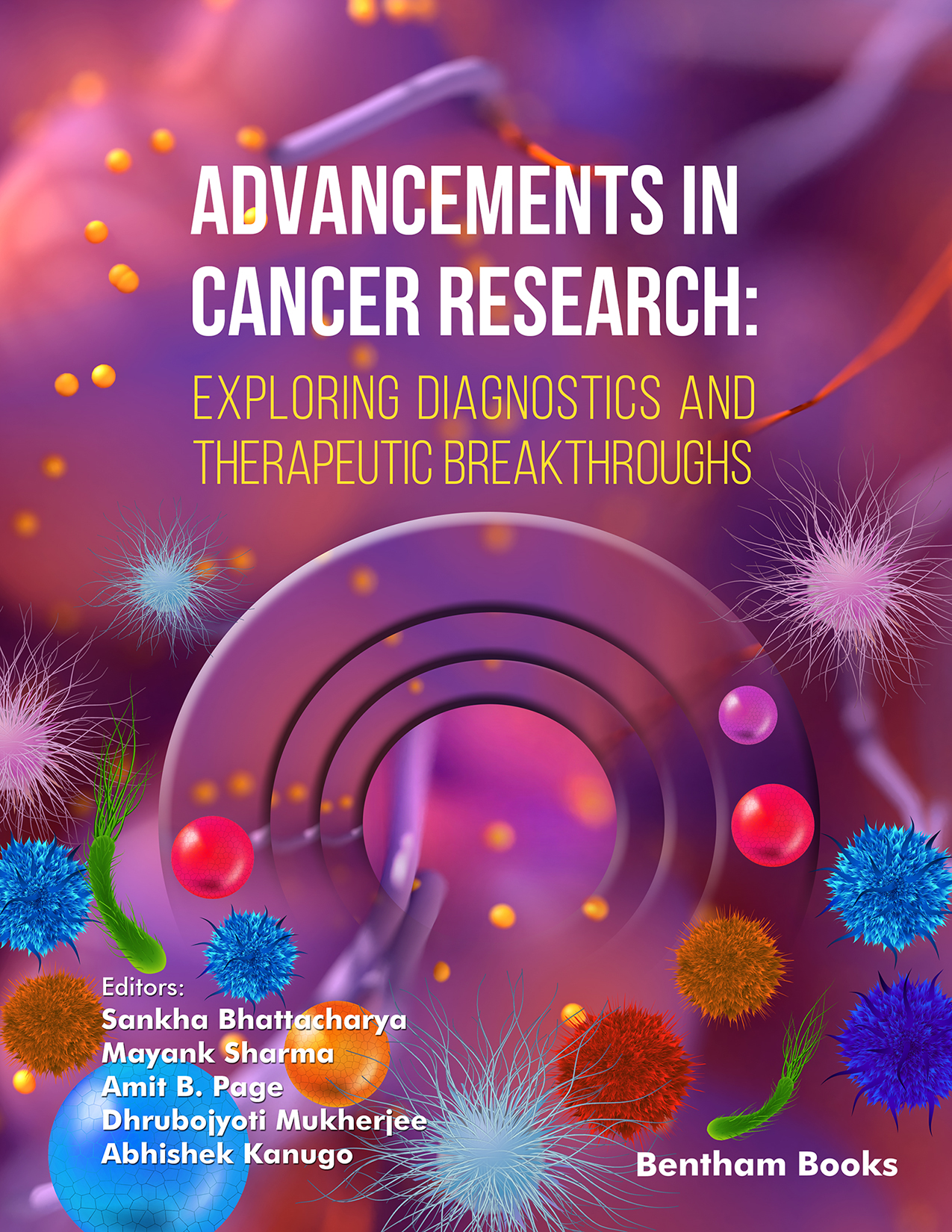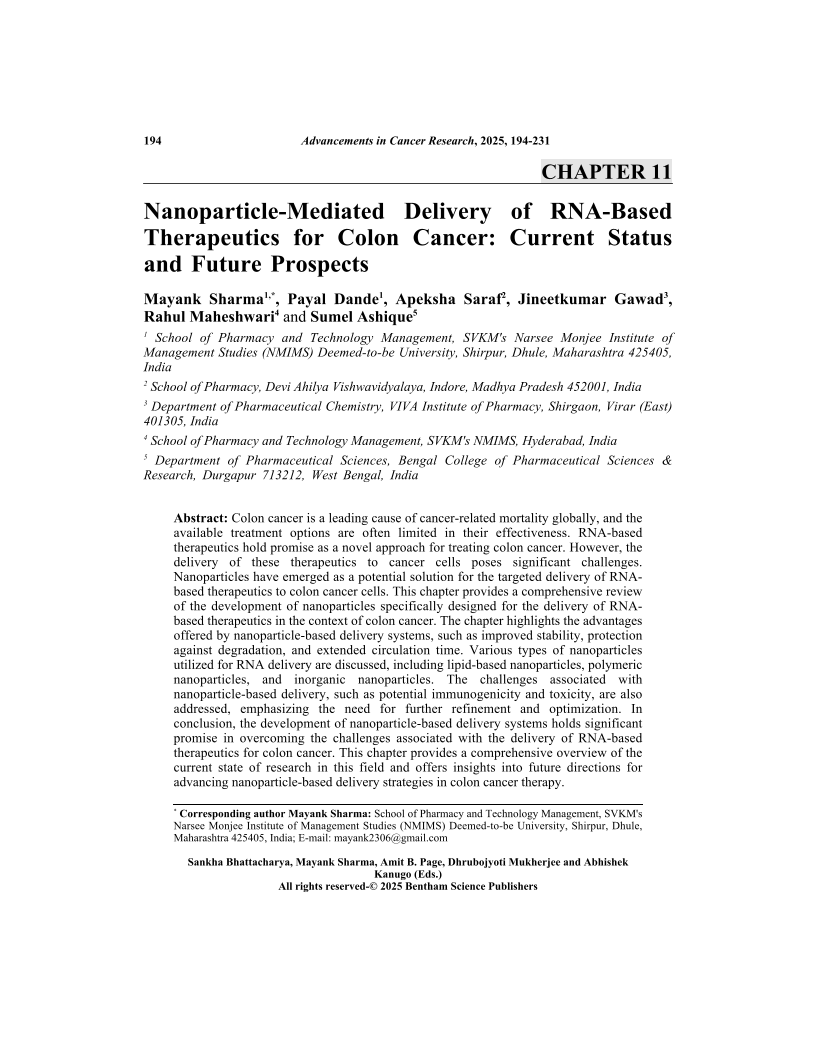Nanoparticle-Mediated Delivery of RNA-Based Therapeutics for Colon Cancer: Current Status and Future Prospects

- Authors: Mayank Sharma1, Payal Dande2, Apeksha Saraf3, Jineetkumar Gawad4, Rahul Maheshwari5, Sumel Ashique6
-
View Affiliations Hide Affiliations1 School of Pharmacy and Technology Management, SVKM's Narsee Monjee Institute of Management Studies (NMIMS) Deemed to-be University, Shirpur, Dhule, Maharashtra 425405, India 2 School of Pharmacy and Technology Management, SVKM's Narsee Monjee Institute of Management Studies (NMIMS) Deemed-to-be University, Shirpur, Dhule, Maharashtra 425405, India 3 School of Pharmacy, Devi Ahilya Vishwavidyalaya, Indore, Madhya Pradesh 452001, India 4 Department of Pharmaceutical Chemistry, VIVA Institute of Pharmacy, Shirgaon, Virar (East) 401305, India 5 School of Pharmacy and Technology Management, SVKM's NMIMS, Hyderabad, India 6 Department of Pharmaceutical Sciences, Bengal College of Pharmaceutical Sciences & Research, Durgapur 713212, West Bengal, India
- Source: Advancements in Cancer Research: Exploring Diagnostics and Therapeutic Breakthroughs , pp 194-231
- Publication Date: February 2025
- Language: English
Nanoparticle-Mediated Delivery of RNA-Based Therapeutics for Colon Cancer: Current Status and Future Prospects, Page 1 of 1
< Previous page | Next page > /docserver/preview/fulltext/9789815305906/chapter-11-1.gif
Colon cancer is a leading cause of cancer-related mortality globally, and the available treatment options are often limited in their effectiveness. RNA-based therapeutics hold promise as a novel approach for treating colon cancer. However, the delivery of these therapeutics to cancer cells poses significant challenges. Nanoparticles have emerged as a potential solution for the targeted delivery of RNAbased therapeutics to colon cancer cells. This chapter provides a comprehensive review of the development of nanoparticles specifically designed for the delivery of RNAbased therapeutics in the context of colon cancer. The chapter highlights the advantages offered by nanoparticle-based delivery systems, such as improved stability, protection against degradation, and extended circulation time. Various types of nanoparticles utilized for RNA delivery are discussed, including lipid-based nanoparticles, polymeric nanoparticles, and inorganic nanoparticles. The challenges associated with nanoparticle-based delivery, such as potential immunogenicity and toxicity, are also addressed, emphasizing the need for further refinement and optimization. In conclusion, the development of nanoparticle-based delivery systems holds significant promise in overcoming the challenges associated with the delivery of RNA-based therapeutics for colon cancer. This chapter provides a comprehensive overview of the current state of research in this field and offers insights into future directions for advancing nanoparticle-based delivery strategies in colon cancer therapy.
-
From This Site
/content/books/9789815305906.chapter-11dcterms_subject,pub_keyword-contentType:Journal -contentType:Figure -contentType:Table -contentType:SupplementaryData105

